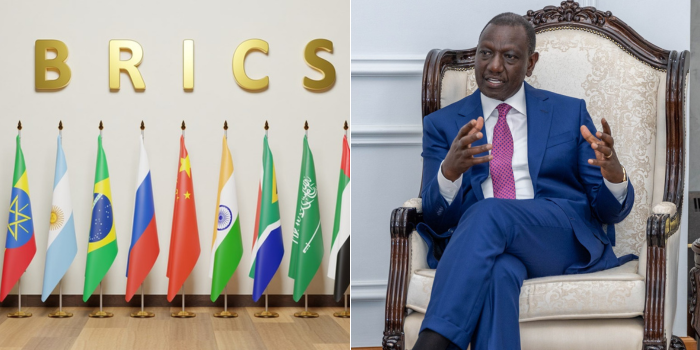Wetangula Sends a Warning to Ruto: Is Power Blinding Kenya’s Leadership?
In a recent twist in Kenyan politics, National Assembly Speaker Moses Wetangula has launched a pointed response to mounting pressure from President William Ruto and his allies. After weeks of tension, Wetangula is fighting back with a blend of symbolism, direct criticism, and calculated strategic moves. Here's a closer look at his three-pronged strategy for standing his ground:

Wetangula started with a classic tactic: symbolism through parables. In a recent speech, he referenced a powerful "king" who ordered the tide not to rise and was subsequently swept away. To many Kenyans, this metaphor pointed directly at President Ruto, suggesting that unchecked power will inevitably lead to downfall. With this tale, Wetangula insinuated that the President might be letting power go to his head, warning that public forces could soon rise up and “sweep” away those clinging too tightly to control.
Political parables have deep cultural resonance in Kenya. This message not only signals resistance but challenges the President on a level that resonates deeply with the public.
Calling Out Key Allies: Holding Parliament Accountable ????️
Beyond indirect warnings, Wetangula aimed directly at some of the President’s close allies, particularly MP Oscar Sudi. Without naming names, he criticized certain leaders who vocalize opposition in public yet remain silent in Parliament. This jab likely pointed at Sudi and PK Salasa, allies who have put pressure on Wetangula to align with the United Democratic Alliance (UDA). By questioning the political value of their contributions, Wetangula drew a sharp contrast between genuine leadership and public posturing.
This exposes inconsistencies in UDA’s ranks and allows Wetangula to frame himself as a defender of legislative integrity. Highlighting these allies’ lack of parliamentary input casts doubt on their commitment to effective governance.
Building a Political Defense Team
Lastly, Wetangula has enlisted loyal supporters to publicly counteract the pressure. His allies, like Senator David Wakoli, are fiercely pushing back, opposing a proposed merger between Wetangula’s Ford-Kenya and Ruto’s UDA. This move not only strengthens Wetangula’s base but emphasizes his independence, demonstrating that he won’t be easily swept into alignment with any political faction.
Assembling allies to confront these issues openly shows Wetangula’s strategic depth and resilience. By creating a network of public figures who share his message, Wetangula ensures his stance won’t easily be undermined.
The Stakes: What’s Really on the Line?
Removing Wetangula could backfire for the President, especially with the next elections on the horizon. Wetangula's contributions to the President’s previous win included a solid vote bank from Bungoma, and alienating him might erode crucial support for the ruling party. If Wetangula is pushed out, it could cement Ruto's government as a “one-term government,” leaving it politically isolated.
Kenyan voters are wary of unchecked power, and Wetangula's growing resistance speaks to those disillusioned by political consolidation. His approach brings to light the balancing act between loyalty and independence that continues to shape Kenyan politics.
What’s your take on Wetangula’s approach? Do you believe his parables are a direct critique of President Ruto, or is he addressing broader political dynamics? Share your thoughts in the comments! And for more insights on Kenya’s political landscape, subscribe to Aktive Citizen on YouTube for the latest updates on governance, politics, and social issues shaping our nation.
What's Your Reaction?






































































































